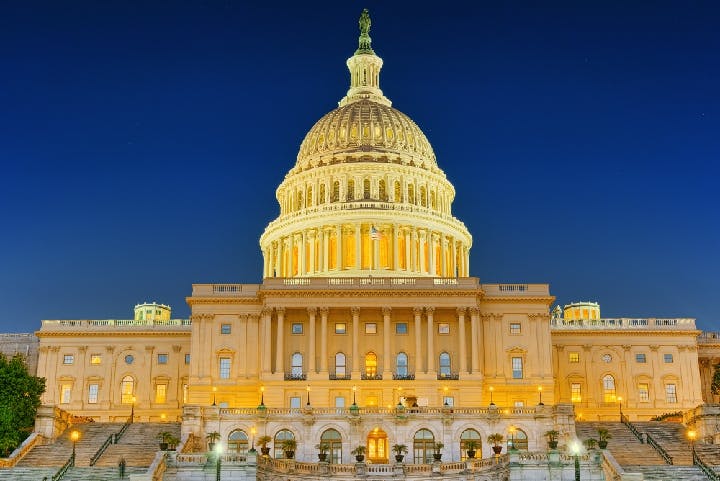Winter 2021
Restoring the Balance
– Gerald Warburg
How can Congress reclaim its constitutional authority to shape foreign policy?
The U.S. Constitution gives federal legislators a strong voice in shaping American foreign policy. It was designed that way. Congress has the exclusive power to declare war, and to fund its prosecution. Senators also approve key executive branch officials and ambassadors, and ratify treaties.
Yet, in recent decades, Congress has retreated from the powers and responsibilities that allow it to help shape key national security decisions. Congressional leadership has dodged accountability. The result is a subtle, but profound shift that has harmed national security significantly by undermining the sustainability of U.S. global commitments.
How did we get here? And what steps must we take to reverse this dangerous trend and to enact essential reforms?
The stakes are higher than ever. The Trump presidency proved capable of undermining key institutions while failing to build strong replacements. Repairing the guardrails of American democracy damaged in an era of hyper-partisanship would be enough of a challenge in itself. But the norm-shattering recklessness of the Trump administration and its revolving door of foreign policy players – many of whom served without Senate confirmation – has made things more difficult.
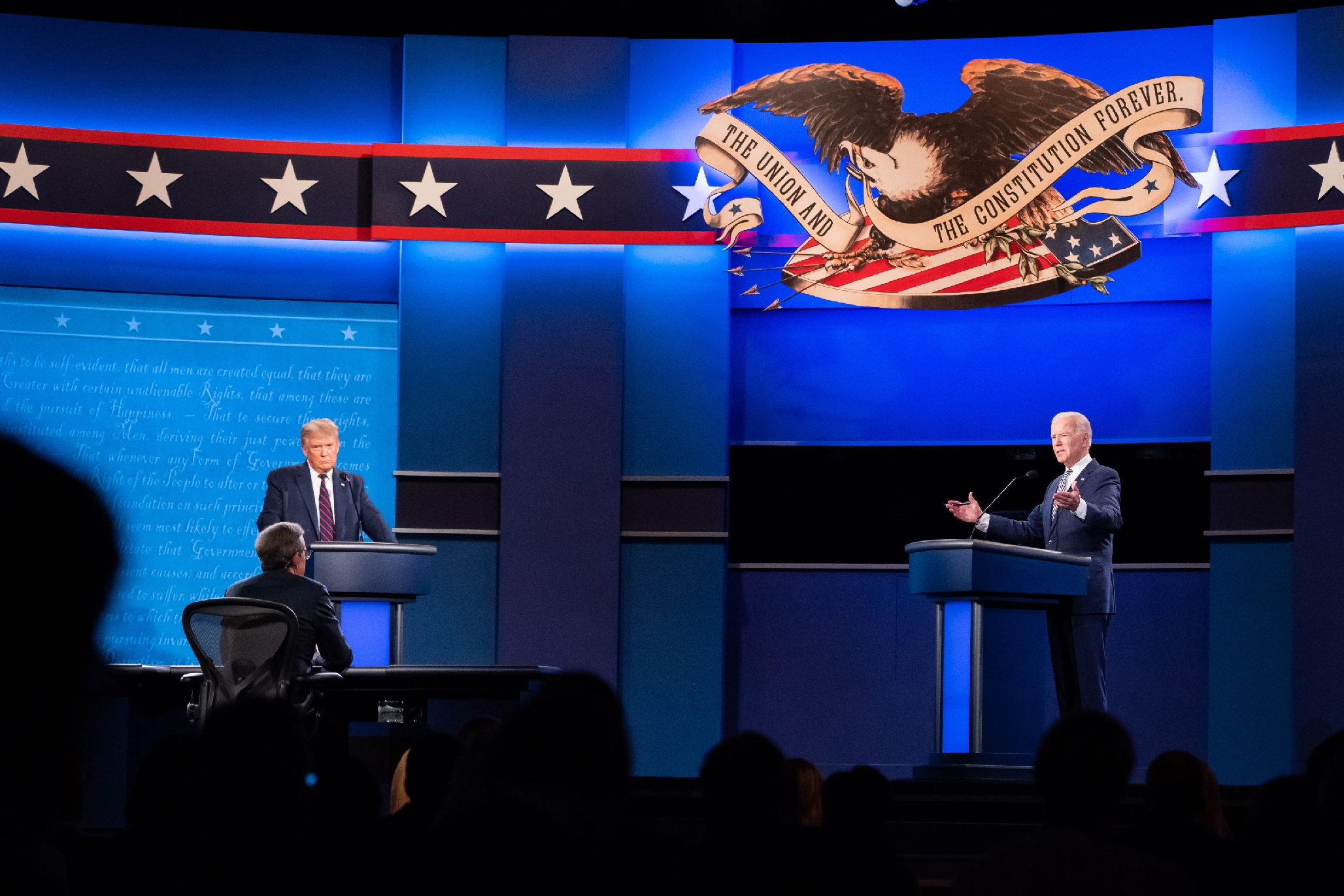
The divisive 2020 election campaign and subsequent battles over confirming its result left both Congress and the Presidency even further diminished in public esteem and credibility. Divided government and razor-thin margins of control in Congress promise contentious battles over foreign policy. Securing America’s future in a rapidly-changing world will require difficult negotiations between seriously-weakened institutions.
It may help that both President-elect Joe Biden and Vice President-elect Kamala Harris have built solid records as champions of legislative accountability as they served in the Senate. But restoring balance in policymaking authority between the branches of government will be a critical challenge.
My new study for the Center for Effective Lawmaking at University of Virginia’s Batten School of Leadership and Public Policy draws upon expertise provided by a broad and bipartisan survey of legislators (past and present) and scholars. It lays out how the essential constitutional balance necessary to better secure long-term U.S. national interests was upended – and proposes a concrete plan for its restoration.
Even in a divided and diminished Washington, there is no better time than the present to change course.
Reform and Reversal
The Cold War period was the primary antecedent of the current challenge. Presidents accumulated greater foreign policymaking powers from 1945 to the mid-1970s. These powers expanded significantly in the ‘imperial’ presidencies of Lyndon Johnson and Richard Nixon, which deepened U.S. military commitments in Vietnam and often kept Congress in the dark.
The expansion of presidential power and the subsequent abuses uncovered after the Watergate crimes in the 1970s led leaders of both parties to reassert their legislative prerogatives. Congress enacted sweeping reform measures, including the War Powers Resolution, the Arms Export Control Act, the Nuclear Nonproliferation Act and the Budget Impoundment and Control Act.
Legislators also made significant internal reforms to Congress, challenging leadership to enhance individual legislators’ powers and defend institutional prerogatives.
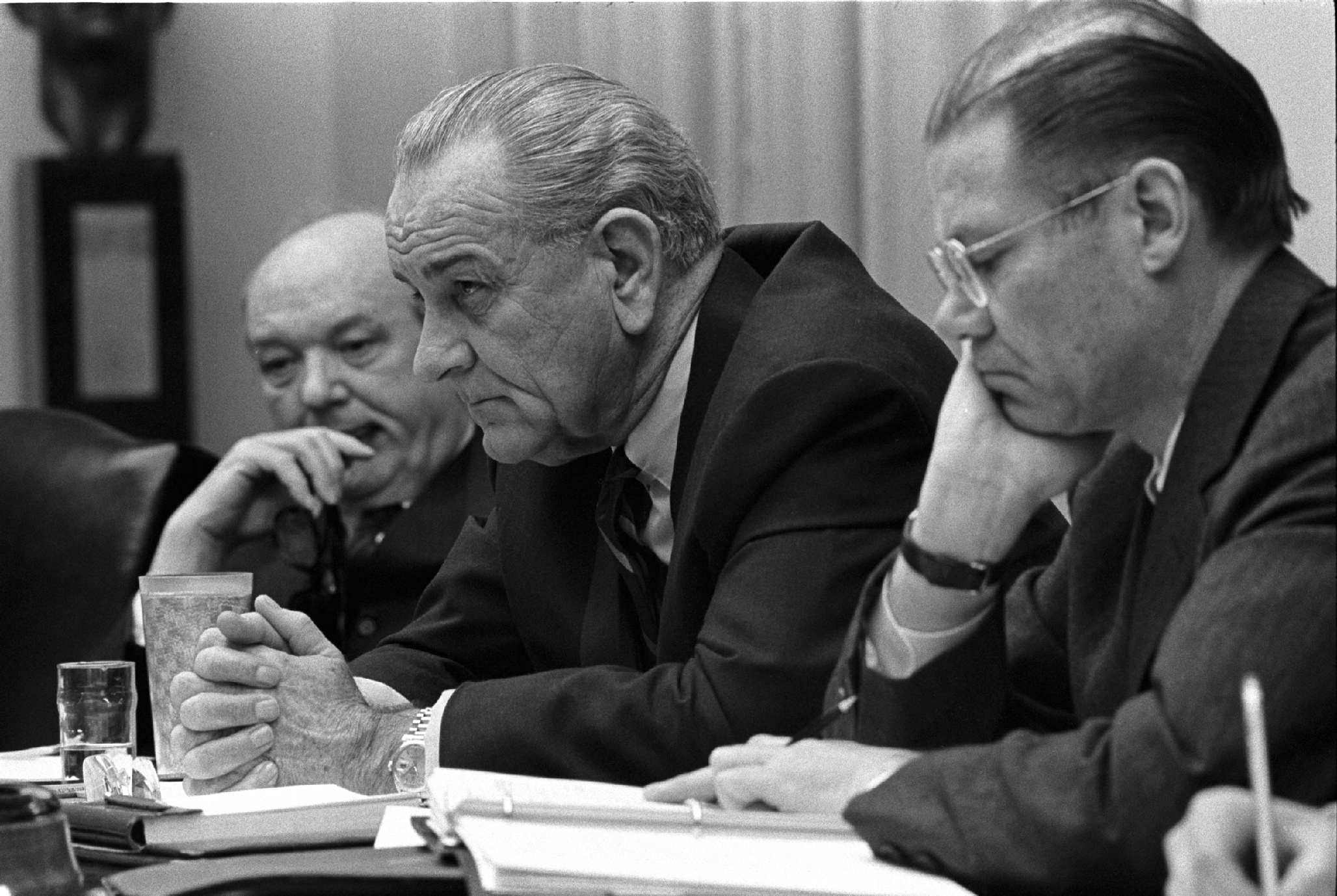
From the budget to foreign aid to trade sanctions, Congress realigned powers in a way more consistent with both the Constitution and our Founders’ intent. Each new law was designed to write Congress back into the process of shaping U.S. international security policies, and empower legislators on domestic issues as well.
A new series of procedural gauntlets that future presidents would have to run before committing the nation to long-term international initiatives proved to be the most enduring legacy of this post-Watergate reform era. Nuclear sales and arms exports required congressional review. Foreign aid was linked to respect for basic human rights. Trade deals were supplemented by labor and environmental standards. Emergency economic powers were checked. Intelligence programs and covert activities were subject to sustained Capitol Hill oversight.
Yet, almost five decades later, this landscape of congressional empowerment has been transformed. Procedural rights have been forfeited by a succession of congressional leaders. Constitutional obligations have also been ignored, as legislators ducked accountability on national security decisions, including the prolonged occupations of Afghanistan and Iraq.
The expansion of presidential power and the subsequent abuses uncovered after the Watergate crimes in the 1970s led leaders of both parties to reassert their legislative prerogatives.
“Congress suffers from a lack of backbone on war votes,” concedes Sen. Tim Kaine, a Virginia Democrat. “Congress has shown a complete unwillingness to defend its Article I power to declare war.”
Even when legislators do question White House military strategy, their leaders protect them from taking difficult votes to define missions or limit their scope.
“Congress has gotten very comfortable having it both ways,” notes veteran Congressman Gerry Connolly (D-VA), “handing over more and more power to the President that the Founders had never intended [the executive branch to have].”
Inevitably, policymaking muscles no longer exercised by Congress have weakened. National security reforms “have been eviscerated, ignored or otherwise interpreted by the executive branch in ways that were never intended,” laments veteran Appropriations Committee clerk Timothy Rieser.
Dodging Accountability
Why – and how – did robust congressional gauntlets on presidential foreign policy powers erected in the 1970s erode?
One reason is that the world itself has changed. Americans now face international challenges of a dramatically different nature than the Cold War conundrums that spurred on Johnson and Nixon. Asymmetrical security threats from terrorists and rogue regimes have grown to equal prominence with great powers competition. The global pandemic, the rise of state-sponsored disinformation, and climate change all pose new threats to U.S. security interests.
.jpg)
These challenges also have emerged in an era when Congress enjoys far less public approval, and is assailed for dodging accountability on major policy issues.
Many see the unique threats posed by asymmetrical terrorist attacks in post-Cold War era as a reason to grant special powers to a “unitary” executive. Former GOP State Department official Jeffrey Bergner argues that “as the face of war is shaped more and more by standoff weapons, drones, and cyberwarfare, it seems less and less likely that Congress will assert its role in authorizing military actions.”
Yet legislators never forfeited foreign policymaking powers in the face of sobering existential threats posed by the Cold War. Congress actually expanded its powers during the high U.S.-Soviet tensions of the 1970s.
“The idea that the executive needs ever more power because of the challenges of counterterrorism doesn’t pass the smell test,” insists Connolly.
Parallels to the era in which Congress reclaimed its rights and responsibilities do remain. The nation is divided as it was in the era of Johnson and Nixon. Protracted conflicts funded and conducted without a declaration of war and with dwindling public support strike us today as all too familiar.
Legislators never forfeited foreign policymaking powers in the face of sobering existential threats posed by the Cold War. Congress actually expanded its powers during the high U.S.-Soviet tensions of the 1970s.
So why has the response of Congress been so different in recent years? Evidence suggests the reasons lie not in a changing world, but in legislators’ failure to rise above the fractious politics of our moment.
Congress’s extensive powers are spelled out in the Constitution in greater detail than those granted to the President. So the “originalist” or “strict constructionist” views that proponents of a ‘strong’ presidency deploy to champion an all-powerful executive lack intellectual consistency.
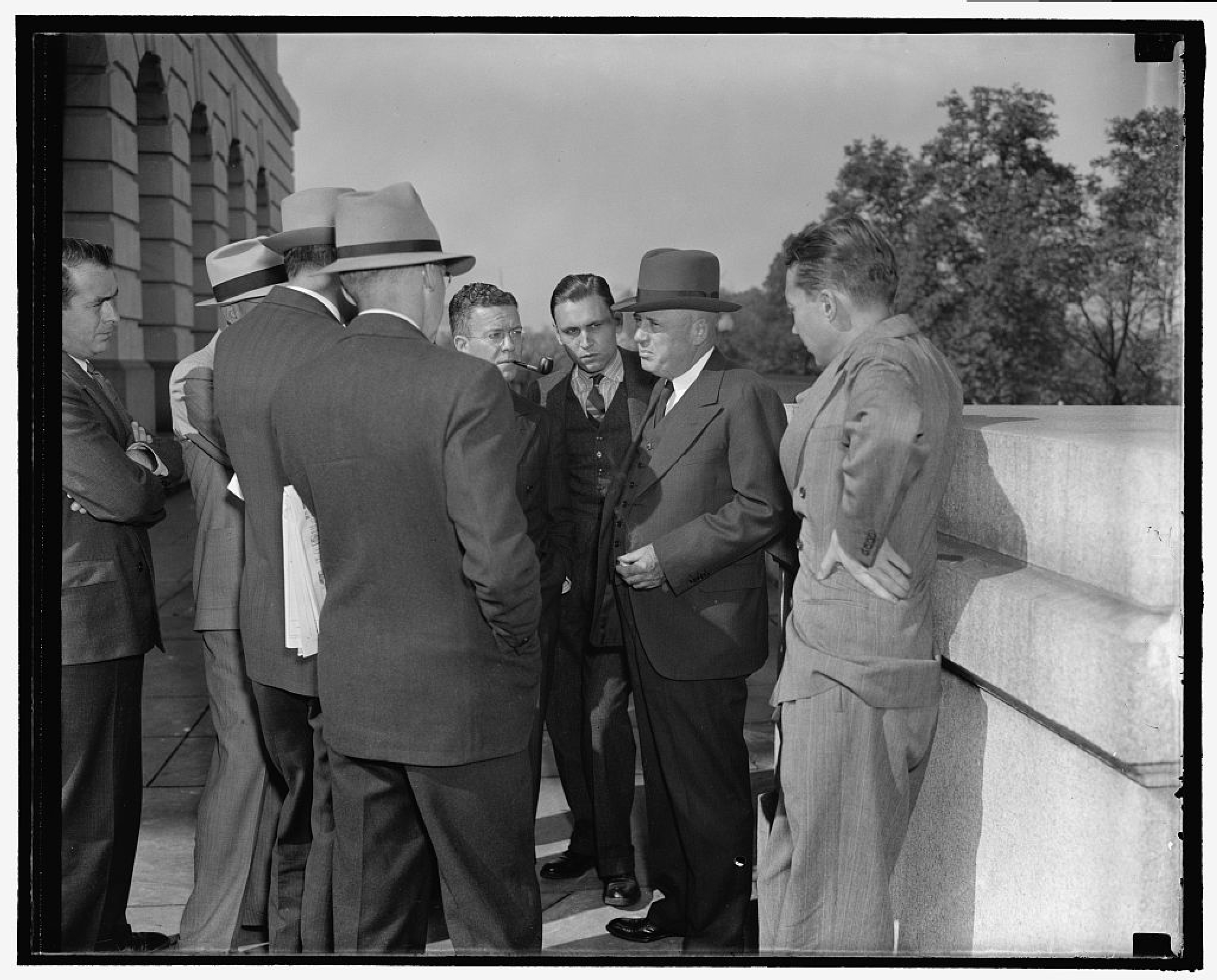
We are a nation founded by skeptics of executive authority. The nation had no chief executive before 1789. The Revolutionary War was fought in part to prevent executive abuses, such as taxing colonists for wars without granting them a voice. Assertions that the Founders supported an executive empowered to override legislators lack any historical basis in fact.
One thing is certain: It is not for lack of hearings that Congress has failed to maintain greater policymaking influence. Numerous academic studies show that Congress continues to use hearings to educate the public in increasingly-prolonged periods of divided government.
Rather, it is action that Congress has avoided. For the first two years of the Trump administration, GOP majorities in both chambers ignored both Russian provocations against Ukraine and the influence of Moscow oligarchs’ money on U.S. elections.

In 2019, the U.S. Senate failed even to object to “the successful campaign to sack a career ambassador [to Ukraine],” Kaine notes, “with profound negative impact on the Foreign Service through this outsourcing of U.S. foreign policy to the President’s lawyer, Rudy Giuliani.”
“The first thing Congress must do to regain its power is to pass more bills,” argues former Rep. Bob Goodlatte (R-VA).
“Congress has forfeited its powers,” former Sen. Jeff Flake (R-AZ) concedes. “We have given up these powers because of our dysfunction.”
The Myth of the Water’s Edge
Critics of a strong foreign policy role for Congress often paint a caricature of “538 Secretaries of State” – individual legislators whose ideas should necessarily harmonize in deference to the president. The argument that American politics traditionally unifies to deal with the rest of the world has led to the powerful notion that disputes on foreign policy “stop at the water’s edge.”
But this is a myth. Indeed, former Secretary of State Condoleezza Rice noted in 2007 that politics routinely start at the water’s edge. And if presidential campaigns that urge a new course in foreign policy date back to 1800, the legacy of Congress defending its Capitol Hill turf is equally strong.
Challenges to diplomatic initiatives bedeviled even the earliest U.S. presidents, including George Washington, John Adams and Thomas Jefferson. Domestic politics prevented President Woodrow Wilson from winning support for the League of Nations. They also prevented President Franklin Delano Roosevelt from aiding Great Britain as it battled Nazi Germany for more than two years.
.jpg)
And even as presidential power in foreign policy grew later in the 20th century, congressional leaders across partisan divides— House Speakers Sam Rayburn and Thomas P. “Tip” O’Neill, and Senate Leaders Everett Dirksen, Sam Ervin, Howard Baker, Jr. and Robert Byrd—fiercely defended legislative prerogatives.
Thus, partisanship provides no justification or precedent to forfeit legislative power and eschew accountability in foreign policy. But ferocious zero-sum partisanship does create conditions unfavorable to wield power and defend congressional prerogatives.
The partisan politics of our moment has left a dwindling number of centrists who can build bridges and survive within the Congress. And moderates who do remain see little electoral benefit—and considerable risk—in tackling international issues.
Often, those who challenge party orthodoxy to shape foreign policy risk defeat. Several Senate Foreign Relations Committee (SFRC) chairs have lost their re-election bids over the years, including Senators J. William Fulbright, Frank Church, Charles Percy, and Richard Lugar.
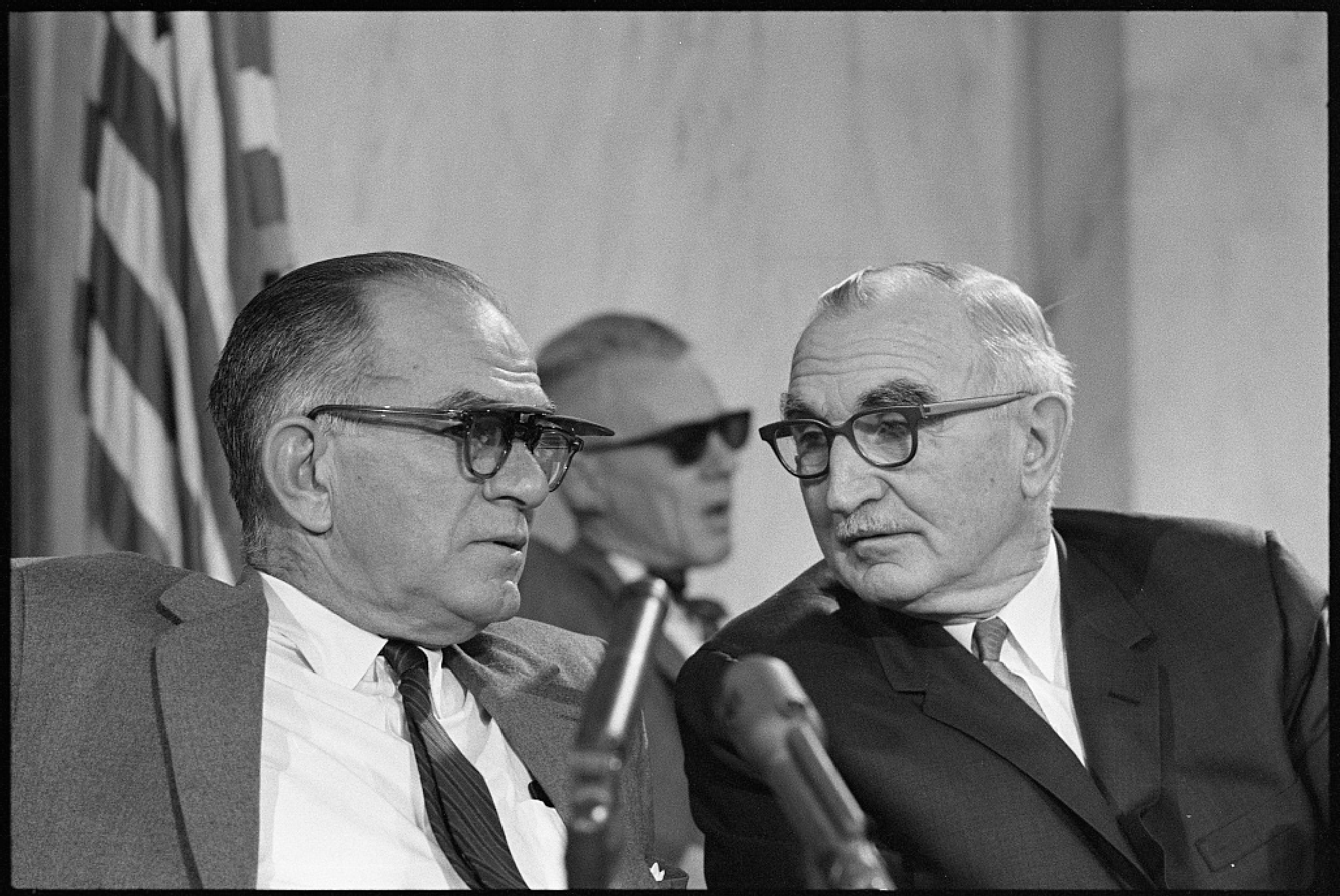
Studies of polarization provide further confirmation that increased party-line voting disincentivizes institutional champions. Most recently, the Iran nuclear deal negotiated by President Barack Obama faced rigid partisan opposition from Senate Republicans who voted as a bloc against an agreement supported by U.S. and Israeli military leaders, as well as key global partners and rivals.
Sen. Chris Coons (D-DE) observes that the combination of party-line voting on security matters and a continuing failure to defend institutional prerogatives “makes it easier for future administrations to just ignore the will of Congress. It means there’ll be less and less bipartisanship in defending Congress.”
Jamming the Machinery
Large ticket items are not the only things that suffer in a polarized legislative environment. Partisanship also jams up the machinery of governance. As former Rep. Vic Fazio (D-CA) observed in his 2019 testimony on modernizing Congress, even nonpartisan efforts to defend the institution have been weakened by intense partisanship.
Former House Foreign Affairs Committee Chairwoman Ileana Ros-Lehtinen (R-FL) describes how passing even a routine State Department authorization measure becomes difficult in such an environment: “The Committee mark-up on the State Department funding bill suffered from dozens of amendments that were simply political messaging. When you try to bring a bill like that to the floor, you get a ‘No’ from leadership.”
The 24-hour news cycle makes taking the nuanced positions favored by moderates more difficult. Flip soundbites and Twitter posts distract from thoughtful analysis and impede its dissemination. Hard line positions and quips are rewarded.
For instance, President Trump boasted by tweet in 2019 about nominating a poorly qualified Director of National Intelligence, then counted on the press to ‘vet’ his choice only after the announcement.
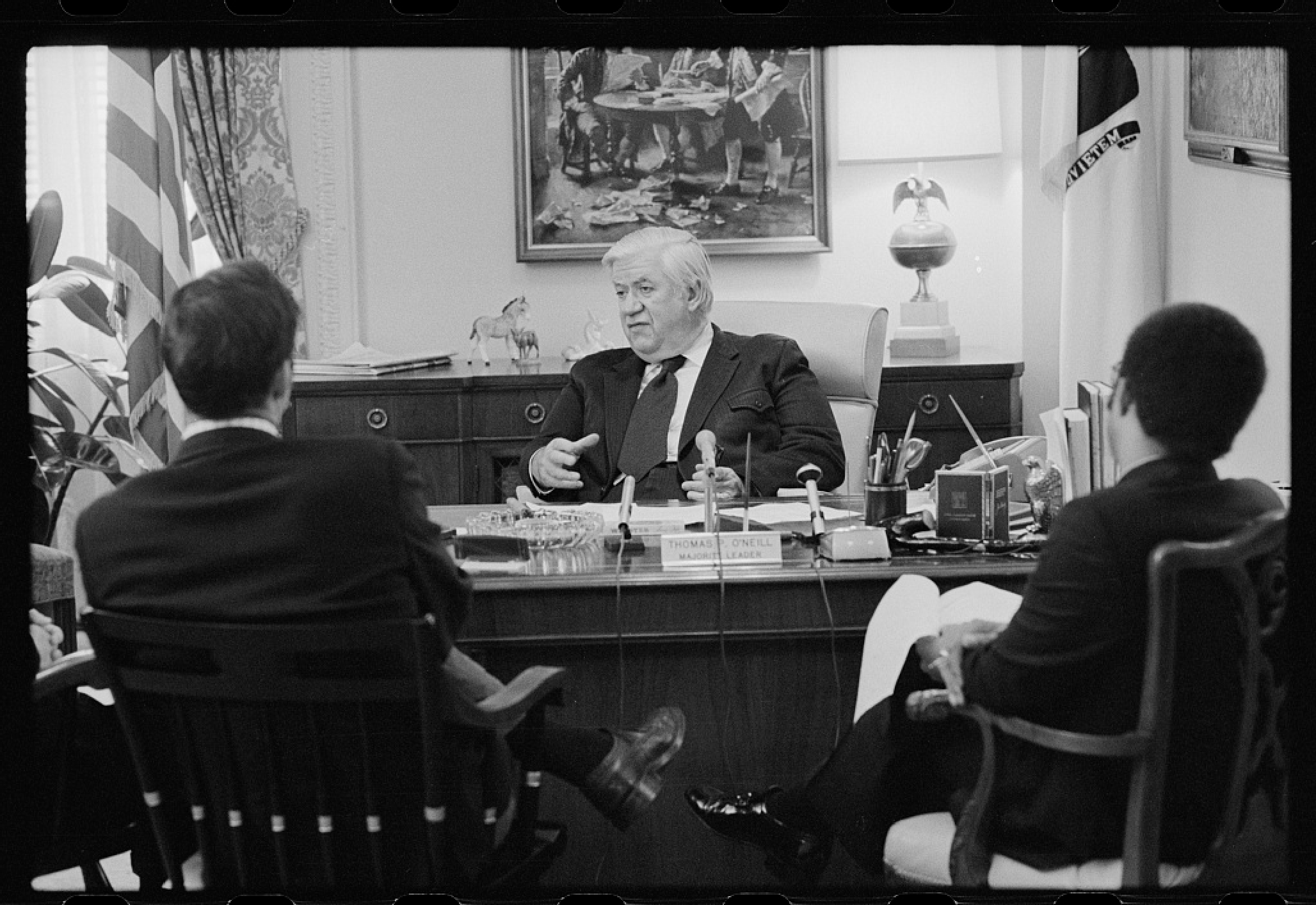
A tangible lack of time spent working across the aisle has also had an impact. Even before the pandemic, legislators spent far less time in Washington and elsewhere together. Bipartisan fact-finding missions overseas have disappeared.
Workload also has made a dent. Senate leaders doubled committee assignments and reduced the number of substantive bills considered. House leaders increasingly draft major bills, bypassing committees. Research shows that incoming members are increasingly generalists. Few specialize in foreign policy. Term limits on committee chairs have further reduced the development of expertise necessary to resist presidential power.
Is it any wonder that the influence of marquee committees has declined sharply? Once upon a time, the SFRC was led by legislators with the power to challenge presidential authority. One recalls not only figures such as Fulbright, Church, and Lugar, but also Jesse Helms, John Kerry, Bob Corker, and President-elect Biden. Such lions have largely vanished from the congressional scene.
This lack of influence has hurt recruitment for these key posts. Enlisting members to serve on the House Foreign Affairs Committee and its Senate counterpart has become a challenge for congressional leadership.
The Powell Doctrine and Public Education
Former Secretary of State Colin Powell is famous for his articulation of a “Powell Doctrine,” which argued that U.S. military deployments are not sustainable without express voter buy-in. It crystallized the larger principle that sustained public support is the key to almost any long-term success for a U.S. foreign policy commitment.
Despite explicit statutory language to the contrary in Section 5 of the War Powers Resolution, continued military appropriations are often misrepresented as congressional endorsement of combat missions. In the changed landscape of weakened congressional influence, members who fear appearing “weak” on defense choose to continue funding for unpopular military commitments.

More robust debate in Congress would be the most transparent means of securing such authorizations. In an era marked by record high defense budgets and prolonged wars, elected officials must sell a policy to the public to make it sustainable.
This premise has guided recent bipartisan efforts to reform war powers measures. Originally drafted by Sen. Kaine and the late Sen. John McCain (R-AZ), current congressional proposals would force members to vote on all prolonged combat missions.
A more engaged Congress is in the national interest. Maximizing engagement requires respect for ‘regular order,’ advancing legislation through public hearings in committees of expertise, and developing a legislative record. It also means full use of the appropriations power of the purse, and passing authorizing bills on time—or withholding legislators’ salaries until this basic constitutional duty is met. Legislators also must hold public hearings before attaching significant policy conditions on omnibus measures.
A better relationship between the two ends of Pennsylvania Avenue also might enhance public understanding of the U.S. role in the world. Using Congress to educate the public on new initiatives strengthens the president’s case.
Public education is crucial in an age of populism, when coastal multilateralists remain suspect in the eyes of voters in the heartland. This type of public education was the key to funding international initiatives from the Marshall Plan and to NASA’s journey to the moon.
“Today’s foreign policy elite,” neo-isolationist Stephen Walt argues, “is a dysfunctional caste of privileged insiders who are frequently disdainful of alternative perspectives and insulated both professionally and personally from the consequences of the policies they promote.”
A Reform Agenda for 2021
The current state of affairs is so damaged that when Congress does try to curb presidential action, invariably the institution is upbraided for challenging the White House.
“It’s shameful,” House Minority Whip Liz Cheney (R-WY) claimed after the House adopted amendments to the 2020 defense bill curbing Trump’s support for Saudi Arabia. “They’re failing to uphold their constitutional duty…When Congress politicizes the National Defense Authorization Act, we are not worthy.”
President Trump savaged multilateral institutions and challenged international norms. Yet his administration had a remarkably small number of major legislative accomplishments, and even fewer diplomatic gains for the United States.
The 24-hour news cycle makes taking the nuanced positions favored by moderates more difficult. Flip soundbites and Twitter posts distract from thoughtful analysis and impede its dissemination. Hard line positions and quips are rewarded.
Space for Congress to reassert its authority may finally be opening up. In the much-maligned 115th Congress (2017-18), Senator Lindsey Graham (R-SC) led the rejection of a White House push for a 33 percent cut in foreign assistance. Republican majorities also challenged Trump on sanctions against North Korea and Russia by refusing to provide presidential waivers and backing legislation to limit the White House ability to impose tariffs.
“The Constitution is very unambiguous,” Sen. Pat Toomey (R-PA) notes. “It assigns Congress the responsibility for regulating commerce with other countries and setting tariffs, and yet we’ve significantly delegated that to the president.”
The 116th Congress saw a bipartisan Senate coalition challenge the White House on arms sales and war powers. Legislators including Sen. Rand Paul (R-KY) and Sen. Mike Lee (R-UT) supported war powers initiatives from Sen. Kaine. Ohio Republican Senator Rob Portman pressed for more Capitol Hill engagement on trade.
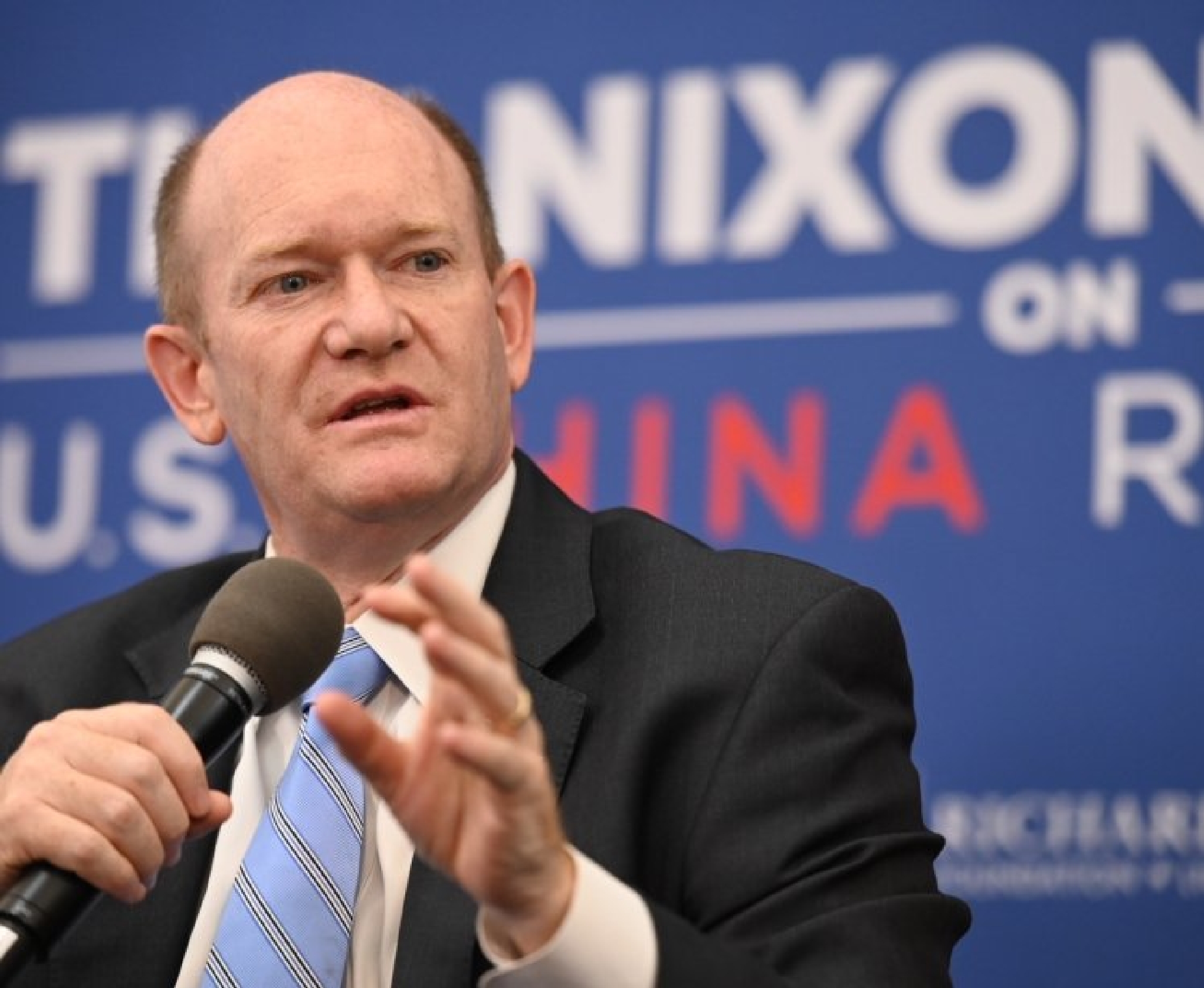
And even before the House first voted to impeach President Trump in December 2019, Congress moved selectively to attempt curbs on his administration’s national security policies, especially with regard to support for Saudi Arabia and the open-ended Authorization for the Use of Military Force for the post-9/11 War on Terror.
Congress also pushed back on Saudi Arabia and human rights. There were majority votes in 2019 to reject White House initiatives on Yemen and arms sales, but both failed to achieve a two-thirds majority necessary to override presidential vetoes. This happened despite Sen. Ted Cruz (R-TX)’s public warning that the Trump administration should “follow the damn law!”
Legislators also challenged the declaration of a military "emergency" on the Mexican border. “We have to push back against the overuse of fake ‘emergencies,’” explains Sen. Kaine. “The ability of the President to pillage DOD appropriations for non-DOD purposes.”
Public education is crucial in an age of populism, when coastal multilateralists remain suspect in the eyes of voters in the heartland.
Many traditional GOP voices concurred: “Conservatism is respect for the rule of law,” maintains President Reagan’s Solicitor General Charles Fried. “It is a respect for tradition. The people who claim they are conservatives today are demanding loyalty to this completely lawless, ignorant and foul-mouthed president.”
Perhaps we now have fertile ground for bipartisan initiatives to reassert foreign policymaking powers to blossom. Several caucus groups have emerged in Congress, pressing reforms and proposing bipartisan collaboration to defend the institution’s prerogatives.
What will it take for reforms to succeed? Five specific actions hold promise:
Pass annual authorizations and on-time appropriations measures as freestanding bills, holding members’ salaries forfeit until completed. Use these legislative vehicles to move procedural reforms.
Negotiate and enact war powers reforms with veto-proof bipartisan majorities by linking their adoption to passage of the annual defense appropriation bill.
End presidential abuses of “emergency” authority on arms sales, border security and trade by limiting statutory waivers and tightening procedural requirements.
Sunset dated measures such as the 2001 Al-Qaeda Authorization for Use of Military Force.
Reassert subpoena powers essential to timely testimony, document production and policy oversight by Congress.
This program would restore the Founders’ vision and renew public trust in the legislative branch. These reforms would enhance congressional accountability and build upon the foundations of the post-Watergate reforms.
These measures would also begin to rebuild voter confidence in Congress, and educate more Americans about the stakes of foreign policy decisions. They would align U.S. foreign policy more closely with voter sentiment, making our international commitments more sustainable and capable of securing U.S. national interests.
The immediate future holds great challenges and opportunities for our nation. Congressional reclamation of powers woven into the U.S. Constitution would make us stronger at this crucial moment.
Gerald Warburg is the author of numerous works on Congress and foreign policymaking. He played a principal role in drafting the Nuclear Nonproliferation Act of 1978, and worked as a foreign policy aide to members of the House and Senate leadership. He is currently a Professor at the University of Virginia’s Batten School of Leadership and Public Policy, and a Faculty Affiliate of Batten’s Center for Effective Lawmaking, which supported this research.
The author wishes to thank Research Assistant Hannah Gavin, who provided exceptional assistance throughout this research project.
Cover Photograph: The U.S. Capitol at night. (V_E / Shutterstock)
